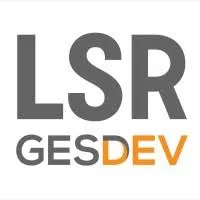Un psychiatre contre Khadr

La Presse Canadienne
2010-10-27 07:00:00
Devant les jurés, la veille, il a soutenu que durant son séjour de huit ans dans l'infâme prison de la base navale de Guantanamo, Kahdr aurait "baigné dans la djihad radicale" avec ses compagnons de prison et serait devenu encore plus dévoué à la cause.
Les jurés ont aussi entendu dire que le "charmant" et "très courtois" Khadr est considéré comme un leader religieux parmi les détenus du camp 4, là où il est détenu.
Le témoignage du docteur Welner a conclu une journée au cours de laquelle les membres de la cour ont entendu comment, au cours d'un échange de tirs en Afghanistan en 2002, Khadr, alors âgé de 15 ans _ croyant qu'il allait mourir _ a voulu tuer autant d'Américains qu'il le pouvait.
Khadr _ qui a plaidé coupable lundi aux cinq chefs d'accusation de crimes de guerre, incluant un meurtre _ admet avoir été "content" lorsqu'il a appris qu'il avait tué un soldat américain, et qu'il se sentait réconforté pendant son incarcération dans la base aérienne de Bagram, en banlieue de Kaboul.
Partager cet article:

 Gmail
Gmail
 Outlook
Outlook



















DSG
il y a 15 ansWhat can a medical professional that closely examined him for years possibly know? ASF has portrayed him as a poor innocent victim of the modern age who was coerced into the actions he committed.
Well, at least the intervention of ASF-like do-gooders will probably result in him one day coming home to Canada. And if the doctor is right in his analysis, no worries; the Charter will protect us from him.
André Giroux
il y a 15 ansToute personne emprisonnée pendant huit ans sans procès serait en colère et amère.
"(...) the Charter will protect us from him." C'est il y a 8 ans que la Charte aurait dû nous protéger... en reconnaissant les droits de Khadr.
Un psychologue québécois expliquait sur les ondes de la première chaîne radio de R.-C., à Maisonneuve à l'écoute, comment un enfant de 15 ans, emprisonné, a besoin de se créer un groupe d'appartenance.
http://www.radio-canada.ca/emissions/maisonneuve_en_direct/2010-2011/chronique.asp?idChronique=123037
Ce que la Presse canadienne ne mentionne pas, c'est que le "camp 4" réunit les personnes les plus coopératives avec les gardiens.
"au cours d'un échange de tirs en Afghanistan en 2002, Khadr, alors âgé de 15 ans _ croyant qu'il allait mourir _ a voulu tuer autant d'Américains qu'il le pouvait." C'est ce que j'appelle un état de guerre.
> What can a medical professional that closely examined him for years possibly know? ASF has portrayed him as a poor innocent victim of the modern age who was coerced into the actions he committed.
>
> Well, at least the intervention of ASF-like do-gooders will probably result in him one day coming home to Canada. And if the doctor is right in his analysis, no worries; the Charter will protect us from him.
DSG
il y a 15 ansYou may have good arguments but I prefer not to debate them with you for the simple reason that this outpouring of sympathy for an enemy combatant may be disrespectful to our troops. I don’t know whether or not you’re a member of ASF, but while our young men are dying over there, can’t you find another cause to give yourself a sense of purpose?
> Toute personne emprisonnée pendant huit ans sans procès serait en colère et amère.
>
> "(...) the Charter will protect us from him." C'est il y a 8 ans que la Charte aurait dû nous protéger... en reconnaissant les droits de Khadr.
>
> Un psychologue québécois expliquait sur les ondes de la première chaîne radio de R.-C., à Maisonneuve à l'écoute, comment un enfant de 15 ans, emprisonné, a besoin de se créer un groupe d'appartenance.
>
> http://www.radio-canada.ca/emissions/maisonneuve_en_direct/2010-2011/chronique.asp?idChronique=123037
>
> Ce que la Presse canadienne ne mentionne pas, c'est que le "camp 4" réunit les personnes les plus coopératives avec les gardiens.
>
> "au cours d'un échange de tirs en Afghanistan en 2002, Khadr, alors âgé de 15 ans _ croyant qu'il allait mourir _ a voulu tuer autant d'Américains qu'il le pouvait." C'est ce que j'appelle un état de guerre.
>
>
> > What can a medical professional that closely examined him for years possibly know? ASF has portrayed him as a poor innocent victim of the modern age who was coerced into the actions he committed.
> >
> > Well, at least the intervention of ASF-like do-gooders will probably result in him one day coming home to Canada. And if the doctor is right in his analysis, no worries; the Charter will protect us from him.
André Giroux
il y a 15 ansJe défends d'autres causes, mais la défense de l'État de droit me paraît très importante, ne serait-ce que pour éviter de donner raison aux extrémistes et ainsi, qu'ils se multiplient.
> You may have good arguments but I prefer not to debate them with you for the simple reason that this outpouring of sympathy for an enemy combatant may be disrespectful to our troops. I don’t know whether or not you’re a member of ASF, but while our young men are dying over there, can’t you find another cause to give yourself a sense of purpose?
>
> > Toute personne emprisonnée pendant huit ans sans procès serait en colère et amère.
> >
> > "(...) the Charter will protect us from him." C'est il y a 8 ans que la Charte aurait dû nous protéger... en reconnaissant les droits de Khadr.
> >
> > Un psychologue québécois expliquait sur les ondes de la première chaîne radio de R.-C., à Maisonneuve à l'écoute, comment un enfant de 15 ans, emprisonné, a besoin de se créer un groupe d'appartenance.
> >
> > http://www.radio-canada.ca/emissions/maisonneuve_en_direct/2010-2011/chronique.asp?idChronique=123037
> >
> > Ce que la Presse canadienne ne mentionne pas, c'est que le "camp 4" réunit les personnes les plus coopératives avec les gardiens.
> >
> > "au cours d'un échange de tirs en Afghanistan en 2002, Khadr, alors âgé de 15 ans _ croyant qu'il allait mourir _ a voulu tuer autant d'Américains qu'il le pouvait." C'est ce que j'appelle un état de guerre.
> >
> >
> > > What can a medical professional that closely examined him for years possibly know? ASF has portrayed him as a poor innocent victim of the modern age who was coerced into the actions he committed.
> > >
> > > Well, at least the intervention of ASF-like do-gooders will probably result in him one day coming home to Canada. And if the doctor is right in his analysis, no worries; the Charter will protect us from him.
GBS
il y a 15 ans>I prefer not to debate them with you for the simple reason that this outpouring of sympathy for an enemy combatant may be disrespectful to our troops.
Your argument is ridiculous, DSG. By your account, any enemy combatant should be guilty of murder and spend 25+ years in jail. Why don't you read the Geneva conventions, and see for yourself what those who had witnessed some of the most gruesome battles in History thought of it. There is clearly a difference when killing is made as an act of war.
The tribunal in which Khadr is has existed in the past, and it was for spies, who were excluded from the category of enemy combatants. The latter were held during the war, and released afterwards, as any POW should be.
The US used Guantanamo and those sham trials in order to be able to hold and interrogate terrorists (or at least, people they believed were at least acquaintances of terrorists), torture them, and get information.
The process itself was simply a smokescreen. The idea was that most of those detained would be returned to their home countries, under vague promises of prosecution (the UK has not prosecuted theirs, I think), and thus save face.
The US is screwed by Canada, who has refused to take back Khadr, and thus they had to go through this charade of a tribunal.
The Bush administration was frustrated that we wouldn't claim Khadr, and so is Obama's.
There is no reason that Khadr should be sentenced to anything harsher than any Afghan combatant that fought americans *during the war* was.
DSG
il y a 15 ans> >I prefer not to debate them with you for the simple reason that this outpouring of sympathy for an enemy combatant may be disrespectful to our troops.
>
> Your argument is ridiculous, DSG. By your account, any enemy combatant should be guilty of murder and spend 25+ years in jail. Why don't you read the Geneva conventions, and see for yourself what those who had witnessed some of the most gruesome battles in History thought of it. There is clearly a difference when killing is made as an act of war.
>
> The tribunal in which Khadr is has existed in the past, and it was for spies, who were excluded from the category of enemy combatants. The latter were held during the war, and released afterwards, as any POW should be.
>
> The US used Guantanamo and those sham trials in order to be able to hold and interrogate terrorists (or at least, people they believed were at least acquaintances of terrorists), torture them, and get information.
>
> The process itself was simply a smokescreen. The idea was that most of those detained would be returned to their home countries, under vague promises of prosecution (the UK has not prosecuted theirs, I think), and thus save face.
>
> The US is screwed by Canada, who has refused to take back Khadr, and thus they had to go through this charade of a tribunal.
>
> The Bush administration was frustrated that we wouldn't claim Khadr, and so is Obama's.
>
> There is no reason that Khadr should be sentenced to anything harsher than any Afghan combatant that fought americans *during the war* was.
Your arguments are very good and we could debate them extensively. But the point that I am trying to make is that we lawyers (the ones with real jobs) should put aside our legal jargon and focus on supporting our troops. Whether or not the privileges of the Charter, due process and Canadian citizenship should be withdrawn from someone who leaves this country to support the opposing side of a war (which is what I think) is besides the point. The point is that such privileges exist thanks to people willing to die for them, and our support should lie solely with them.
GBS
il y a 15 ans>The point is that such privileges exist thanks to people willing to die for them, and our support should lie solely with them.
I am of the opinion that insisting that Khadr be dealt with according to the Geneva Conventions is not, in any way, a lack of support for our troops, or our allies' troops.
It is a very real possibility, even more so in times of war, that a government and its agents may abuse their power. It's not because we share the same goal as them, e.g. victory, that we should condone the wrong way to attain it.
Even more, if we label our action a "just war", it is even more important to follow the rules we set for ourselves, and ask our enemies to respect.
>But the point that I am trying to make is that we lawyers (the ones with real jobs) should put aside our legal jargon and focus on supporting our troops.
To that, I can only repeat what one of the most famous lawyers of all time denounced:
"Silent enim leges inter arma".
DSG
il y a 15 ans> >The point is that such privileges exist thanks to people willing to die for them, and our support should lie solely with them.
>
> I am of the opinion that insisting that Khadr be dealt with according to the Geneva Conventions is not, in any way, a lack of support for our troops, or our allies' troops.
>
> It is a very real possibility, even more so in times of war, that a government and its agents may abuse their power. It's not because we share the same goal as them, e.g. victory, that we should condone the wrong way to attain it.
>
> Even more, if we label our action a "just war", it is even more important to follow the rules we set for ourselves, and ask our enemies to respect.
>
> >But the point that I am trying to make is that we lawyers (the ones with real jobs) should put aside our legal jargon and focus on supporting our troops.
>
> To that, I can only repeat what one of the most famous lawyers of all time denounced:
>
> "Silent enim leges inter arma".
We agree to disagree. But I appreciate the intelligent and respectful manner with which you present your arguments.